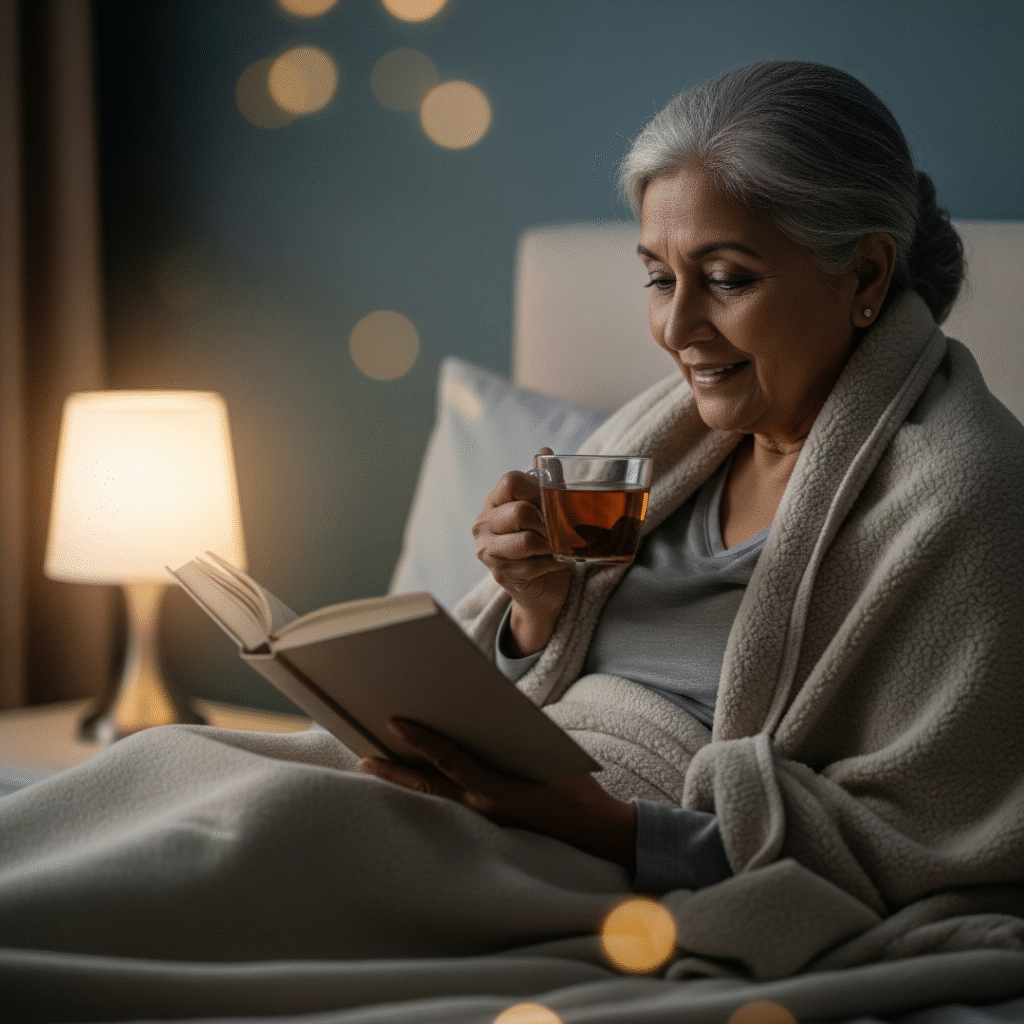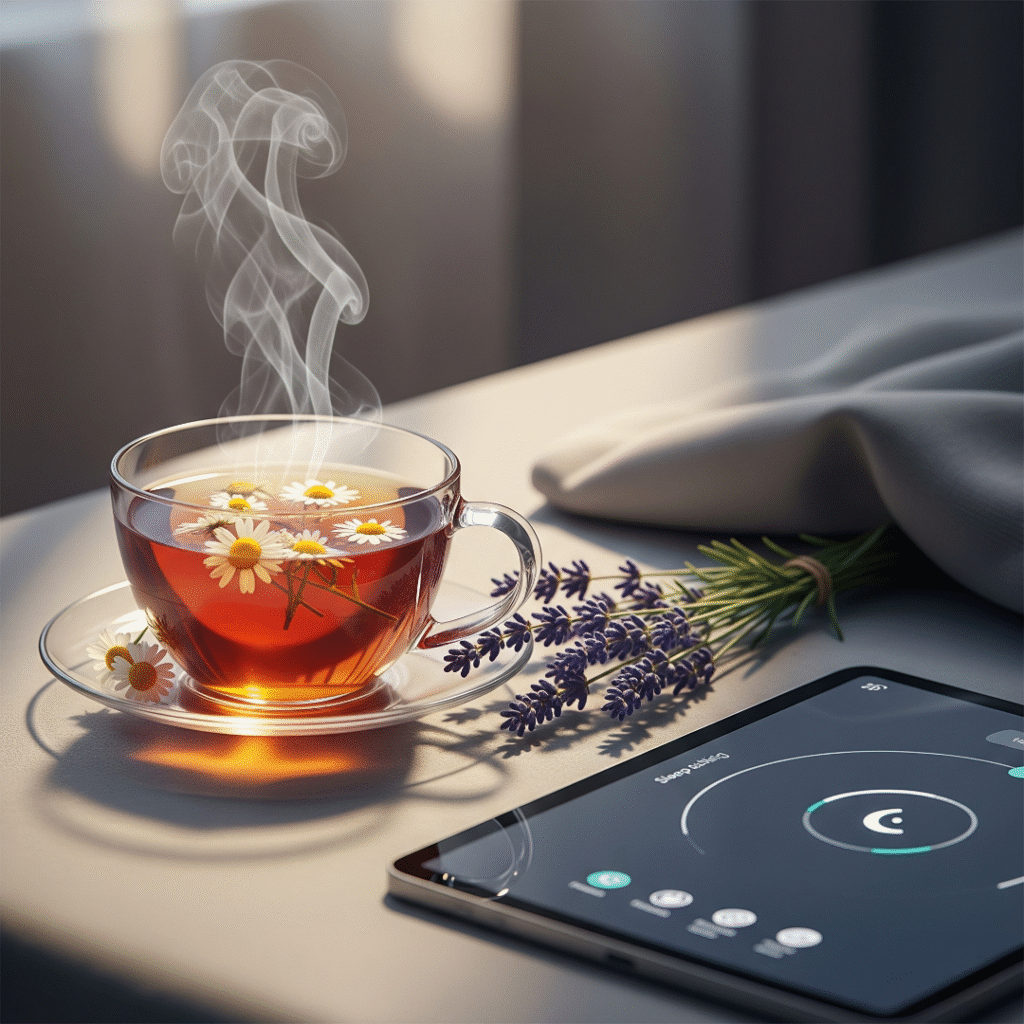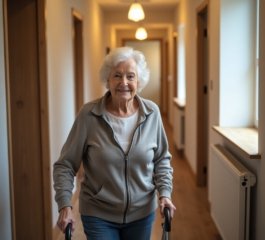- Physical Health: Chronic sleep deprivation can weaken your immune system, increase the risk of heart disease, type 2 diabetes, and even impact weight management. Staying fit becomes harder when your body isn’t properly rested.
- Mental Acuity: A lack of good sleep can impair concentration, memory, and problem-solving abilities. Your brain needs rest to consolidate memories and prepare for the next day.
- Mood and Emotional Well-being: Sleep disturbances are often linked to increased feelings of irritability, stress, anxiety, and even depression. Getting a good night’s sleep is crucial for emotional resilience.
- Safety: Fatigue can affect your balance and reaction time, potentially increasing the risk of falls, which is especially critical for senior living.
Understanding these impacts highlights why prioritizing sleep is a cornerstone of an active senior living.
Mastering Your Sleep Hygiene: Habits for a Good Night’s Sleep

Achieving good sleep often comes down to developing consistent habits and optimizing your sleep environment. This is what we call sleep hygiene.
- Stick to a Sleep Schedule: Go to bed and wake up at roughly the same time every day, even on weekends. Consistency helps regulate your body’s natural sleep-wake cycle (circadian rhythm).
- Create a Relaxing Bedtime Routine: Wind down an hour or two before bed. This could include reading (a physical book, not a screen!), taking a warm bath, listening to calming music, or doing gentle stretches. Avoid stimulating activities.
- Optimize Your Sleep Environment: Make your bedroom dark, quiet, and cool. Block out light with blackout curtains, use earplugs or a white noise machine if necessary, and ensure the temperature is comfortable.
- Limit Screen Time Before Bed: The blue light emitted by phones, tablets, computers, and TVs can disrupt melatonin production, a hormone essential for sleep. Try to avoid screens at least an hour before bedtime.
- Watch What You Eat and Drink: Avoid heavy meals, caffeine, and alcohol close to bedtime. While alcohol might initially make you feel sleepy, it often disrupts sleep later in the night.
Navigating Common Sleep Challenges for Seniors
Many seniors face specific challenges that can disrupt their sleep. Knowing about them can help you find solutions.
- Frequent Waking: It’s common for seniors to wake up more often during the night, whether for bathroom breaks or due to lighter sleep stages. Focus on making it easy to fall back asleep (e.g., dim night lights).
- Pain and Discomfort: Chronic pain from conditions like arthritis can severely impact sleep well. Work with your doctor to manage pain effectively before bedtime.
- Medication Side Effects: Some medications can interfere with sleep. Review your prescriptions with your doctor or pharmacist to see if any are contributing to sleep problems and if alternatives are available.
- Underlying Health Conditions: Conditions like sleep apnea (where breathing repeatedly stops and starts), restless legs syndrome, or even certain heart conditions can disrupt sleep. If you suspect any of these, it’s crucial to seek medical advice. Devices like a CPAP machine might be recommended by your doctor if you have sleep apnea, and you might search for accessories or information on marketplaces like Shopee once diagnosed. A proper sleep clinica can help with diagnosis.
Beyond Basic Tips: Exploring Natural Sleep Aids and Technologies

While good sleep hygiene is paramount, some seniors find additional help from natural sleep aids or modern technologies.
- Melatonin: This natural hormone regulates sleep. Low doses (e.g., 1-3mg) taken about an hour before bed can sometimes help reset your sleepcycle or alleviate jet lag. Always consult your doctor before taking supplements.
- Herbal Remedies: Chamomile, valerian root, and lavender are often used to promote relaxation and good sleep. Again, discuss with your healthcare provider, especially if you’re on other medications.
- Mindfulness and Meditation: As discussed in our article on stress management, these practices can calm a racing mind, making it easier to fall and stay asleep. Many apps (like Sleep Cycle for tracking) and online resources offer guided meditations.
- Blue Light Blocking Glasses: If avoiding screens before bed is challenging, consider using glasses that block blue light.
- Sleep Tracking Apps/Devices: Apps like SleepCycle or dedicated wearable devices can help you understand your sleep patterns, though their accuracy varies. Some might even suggest personalized tips for good sleep.
When to Seek Professional Help
While these sleep tips for seniors can go a long way, there are times when professional help is needed. If you consistently struggle with sleep, experience excessive daytime sleepiness, or suspect a sleep disorder (like sleep apnea or chronic insomnia), it’s crucial to talk to your doctor. They can assess your situation, review your medications, and refer you to a sleep clinica or a sleep specialist if necessary. Investing in your sleep health for seniors is one of the best ways to ensure a vibrant and fulfilling retirement life.
👉 Reclaim Your Rest and Recharge
Unlocking your true nap power isn’t just about catching a few winks; it’s about optimizing your entire approach to rest. By embracing consistent sleep hygiene, understanding common challenges, and knowing when to seek professional guidance, you can significantly improve the quality of your sleep. A good night’s sleep is a powerful tool for maintaining physical health, mental sharpness, and emotional well-being, allowing you to fully enjoy your active senior living. Prioritize your rest, and watch your retirement life flourish with renewed energy and vitality.
💡 For detailed guidance on the importance of sleep and its relation to overall health in older age, you can consult the resources from the National Institute on Aging (NIA).
Frequently Asked Questions (FAQ)
Q1: How much sleep do seniors actually need? A1: Most adults, including seniors, need 7-9 hours of sleep per night for optimal health. While sleep patterns may change with age, the need for adequate rest doesn’t decrease.
Q2: Is it okay for seniors to take naps during the day? A2: Short, strategic naps (20-30 minutes) can be beneficial for boosting alertness and energy, contributing to your overall nap power. However, long or late-day naps can interfere with good night’s sleep.
Q3: Can diet affect my sleep as a senior? A3: Yes, what and when you eat can significantly impact your sleep. Avoiding heavy meals, caffeine, and alcohol close to bedtime is a key part of sleep hygiene. Certain foods rich in magnesium or tryptophan might promote sleep.
Q4: What’s the biggest mistake seniors make regarding sleep? A4: One common mistake is not maintaining a consistent sleep schedule, especially on weekends, and not having a proper wind-down routine before bed. Relying too heavily on sleep aids without addressing underlying issues is also problematic.
Q5: When should I talk to my doctor about sleep problems? A5: You should consult your doctor if you consistently have trouble falling or staying asleep, if you snore loudly, wake up gasping for air, or feel excessively sleepy during the day despite getting enough sleep at night.
Q6: What is ‘sleep hygiene’ for seniors? A6: Sleep hygiene refers to a set of practices and habits necessary to have good sleep quality. This includes having a regular sleep schedule, a comfortable sleep environment, a relaxing bedtime routine, and avoiding stimulants before bed.
Read Also: How to Prevent Falls in the Elderly: Essential Tips for Safety and Independence
A5: você deve consultar seu médico se tiver consistentemente problemas para cair ou ficar dormindo, se você roncar alto, acorda ofegando por ar ou se sentir excessivamente sonolento durante o dia, apesar de dormir o suficiente à noite.





